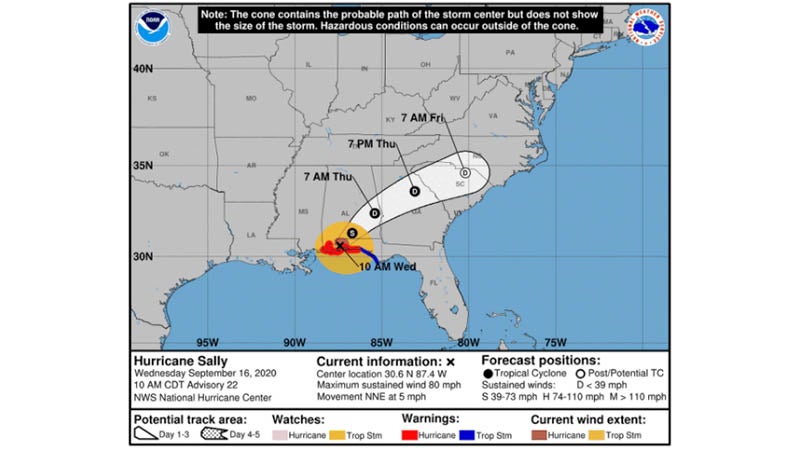Legislative action could impact probation, parole
Published 12:05 am Thursday, April 30, 2015
Possible actions by the Alabama Legislature in its current session could cause huge shifts in the way state probation and parole officers work.
At present, the Covington County office works with fewer officers than it once had, and each local probation and parole officer is responsible for the oversight of more than 188 offenders. With that large case load, officer-in-charge Jeff Jeter said, the practice can’t really be proactive.
In addition to Jeter, probation officers Jamey Wismer, Nichole Appleyard and Cory Smith take on the massive task of supervising approximately 188 offenders each, or a total of 754 offenders.
“When you’re trying to supervise that many offenders, you’re reacting to problems much more than being proactive to where you don’t have the time or resources to devote to prevention and reducing recidivism,” Jeter said.
Of the 754 offenders that the Andalusia office supervises:
• 469 offenders are being actively supervised;
• 115 offenders are wanted, which means warrants have been issued for their arrests. Forty-four of the wanted offenders are in jail for violating conditions of their probation or parole; and,
• 170 offenders are split sentence cases. These offenders are given an amount of time — six months, 12 months or 18 months to serve in prison — and upon release, will be put on probation.
Assistant Executive Director for the Board of Pardons and Parole Eddie Cook said the offenders who are being actively supervised are those who are complying and reporting during their probation period.
“They’re being supervised, and they’re receiving drug screenings,” Cook said. They’re reporting to see a probation officer every month.”
Cook said the 115 wanted offenders are being sought by the probation officers.
As to the total number of offenders for the local office, Cook said the number is high.
Jeter said there is a difference between offenders who are on parole and those who are on probation.
“Essentially, the difference is that parole is sanctioned by the parole board,” he said. “Somebody that’s on probation is with in the jurisdiction of a judge.”
At the first of the month, offenders check in with their parole or probation officers.
“They fill out a report to let us know if they’ve moved or where they’re living,” Jeter said. “They sit down and meet with their officer.”
The interviews can last from 5-30 minutes, depending on the circumstance, Jeter said.
“Five minutes is the guy doing everything he has to do,” Jeter said. “He hasn’t moved and hasn’t had any problems. We may spend 30 minutes with the next guy who has got all kinds of problems.”
Most of the offenders are of the five-minute variety, which helps the office because most of the time, the officers are doing investigations, Jeter said.
“We do those for the court and we do them for the parole board,” he said. “There was a law (Alabama Code 13A-5-5) that was passed five years ago that said that every felony conviction in the state of Alabama has to have a pre-sentence or post-sentence investigation. That’s where a lot of our time goes.”
Another part of the probation and parole officer’s job that takes a bit of time is implementing the ORAS (Ohio Risk Assessment System) to help identify what risks, if any, each offender may pose.
Jeter said the assessment alone takes an hour.
“Right now, we’ve got two officers in the office who are trained to do that,” he said. “That’s me and Nichole. The other two are being trained this week. That’s something the entire state is going to to give us a much better look at the risk of our offenders and the needs of our offenders, as far as getting individualized risk plans for them.”
If the Alabama legislature decides to address the shortfall in the state’s General Fund budget with cuts rather than increases in revenue, Jeter and others expect to be charged with seeing the same number of offenders – or perhaps more – with fewer employees. Early predictions of possible ways to balance the General Fund with new taxes shows across-the-board cuts to all state agencies except education.
But also being considered in the legislature is a $23 million prison reform package, which among other things, calls for the hiring of 123 additional parole and probation staff members. But it also includes measures that would increase the caseloads of those officers – by limiting incarceration time and requiring mandatory supervision on release for those convicted of Class C felonies.
The massive reform bill, SB62, has passed the Senate, and awaits action in the House Judiciary Committee, which Covington County Rep. Mike Jones chairs.
“I think we’re very important,” Jeter said about the role parole and probations officers serve. “We’re already stretched very thin. I can’t see any way (additional cuts) wouldn’t be a risk to public safety.”
Cook said the prison reform bill recommends that the board of pardons and parole receive $18.5 million to implement the prison reform initiative.
“That will in turn give us more officers to supervise our offenders, thereby reducing the number of offenders an officer has to deal with,” he said. “It implements things for programs for the offenders.
“Likewise, if the budget is cut, like what has been proposed, some 17.4 percent, it will have just the opposite dire effect on the agency,” he said. “That means we’ll have to lay off in excess of 60 employees, which in turns has a negative effect, which in turns means less supervision, less employees to do their job and less likely to do the job we’re statutorily ready to do.”





